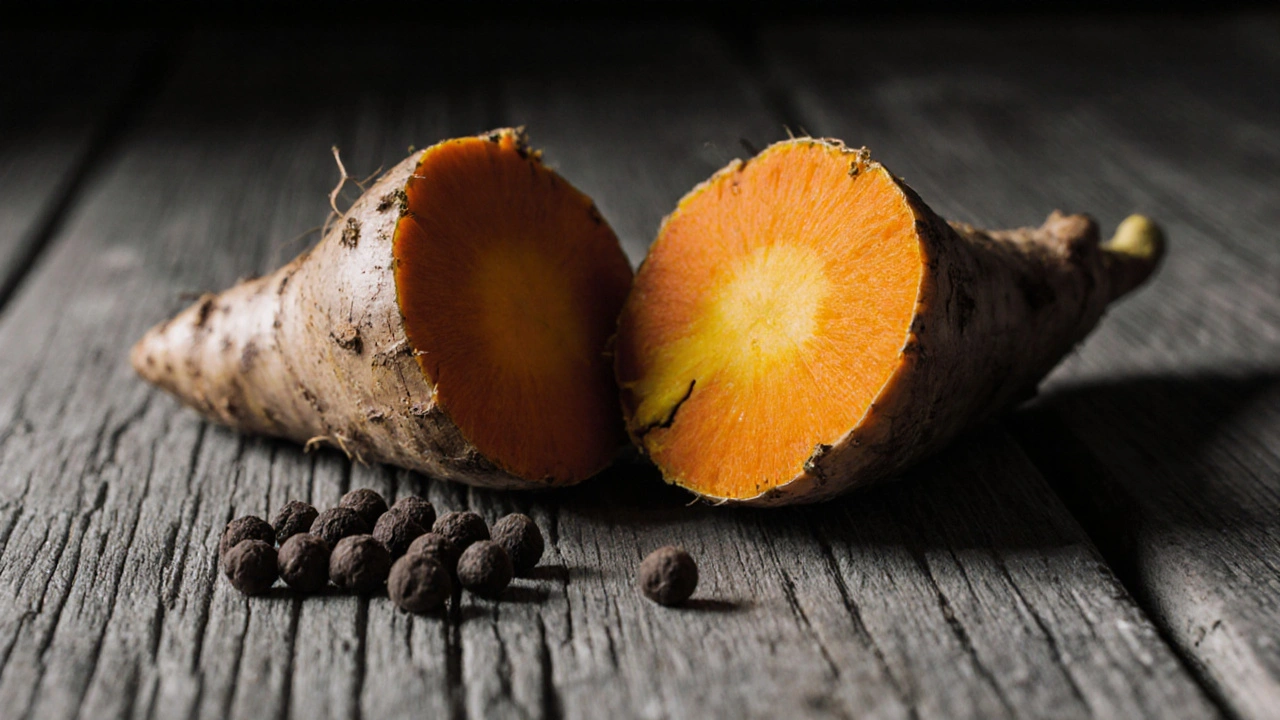Turmeric alternatives – natural substitutes for anti‑inflammatory health
When exploring Turmeric alternatives, herbs, spices, and supplements that can provide comparable anti‑inflammatory and antioxidant effects to turmeric. Also known as curcumin substitutes, it helps people who want similar health benefits without relying on turmeric alone. Turmeric alternatives are useful for anyone managing joint aches, digestive upset, or looking to boost overall wellness with plant‑based compounds.
One of the most direct replacements is Curcumin, the active ingredient that gives turmeric its signature yellow hue. Curcumin supplements deliver a concentrated dose of the compound, often paired with black‑pepper extract to improve absorption. Another popular option is Ginger root, which contains gingerol and shogaol—both known for reducing inflammation and easing nausea. Ginger can be used fresh, powdered, or as a capsule, making it flexible for cooking or supplementation.
For those who prefer resin‑based herbs, Boswellia extracts (also called Indian frankincense) offer potent anti‑inflammatory properties thanks to boswellic acids. Studies show boswellia can support joint health and may be gentler on the stomach than some NSAIDs. Green tea catechins provide another angle: the antioxidant EGCG works alongside curcumin to protect cells from oxidative stress. Drinking green tea or taking a standardized extract adds a mild, daily anti‑inflammatory boost without strong flavors.
Choosing the right substitute for your needs
Picking a suitable turmeric alternative depends on three factors: desired health effect, tolerability, and how you plan to incorporate it. If you need a high‑dose curcumin effect, look for supplements that use patented formulations like Meriva or Theracurmin. If you enjoy cooking, ginger powder can replace turmeric in curries while still delivering warmth and digestive support. For joint‑specific concerns, boswellia capsules often come in 300‑600 mg doses taken two or three times a day. Green tea works best as a beverage or a low‑dose supplement taken between meals to avoid caffeine spikes.
Bioavailability is a common hurdle across these alternatives. Curcumin alone is poorly absorbed, which is why most products combine it with piperine (black‑pepper extract) or phospholipids. Ginger’s active compounds are more readily taken up, but high heat can degrade some benefits, so adding it at the end of cooking preserves potency. Boswellia’s acids are lipophilic, so taking them with a small amount of fat improves uptake. Green tea catechins bind to proteins, so drinking the tea on an empty stomach maximizes absorption.
Safety profiles also vary. Curcumin is generally safe but can interact with blood‑thinners at high doses. Ginger may cause mild heartburn in sensitive individuals, and large amounts could affect blood clotting. Boswellia is well‑tolerated but occasional stomach upset can occur, especially with cheaper extracts. Green tea’s caffeine content can be an issue for those with insomnia or heart rhythm concerns, though decaf options are available.
In practice, many people stack these alternatives to cover multiple pathways. A typical daily regimen might include a curcumin‑piperine capsule for systemic inflammation, a ginger tea in the morning for digestion, and a green‑tea shot in the afternoon for antioxidant support. Adding boswellia once or twice a week can further aid joint comfort during high‑impact activities.
Below you’ll find a curated collection of articles that dive deeper into specific health topics, from natural anti‑inflammatory herbs to prescription medication comparisons. Whether you’re looking for buying guides, side‑effect reviews, or dosage tips, the posts below will help you choose the right option for your lifestyle and health goals.
Haridra vs Alternatives: In‑Depth Ayurvedic Supplement Comparison
A detailed comparison of Haridra (turmeric) with top Ayurvedic alternatives, covering benefits, bioavailability, side effects, and how to choose the right supplement.

